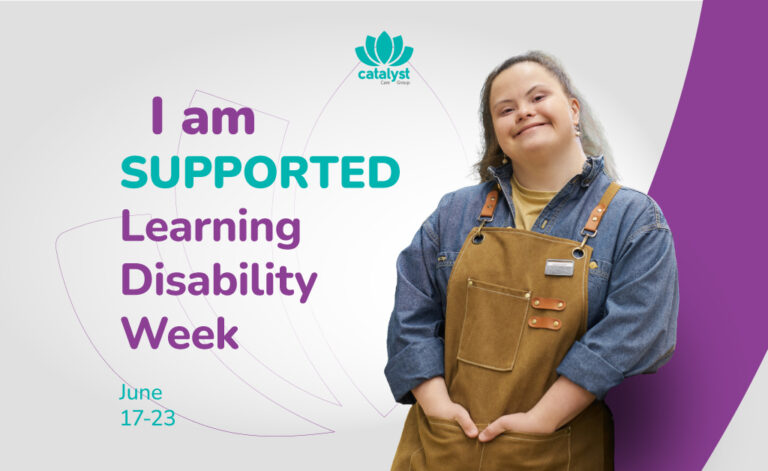Supported living service is designed to foster independent living for people with learning disabilities, autism, and mental health challenges. The process involves moving from traditional care settings to the person’s own or supported living homes while providing person-centred and bespoke care.
Importance of Supported Living Services
Supported living services play a crucial role in promoting independent living for people with lived experience. These services provide multifaceted support to ensure a smooth transition process from hospital settings to people’s own homes.
Supported living service aims to create a nurturing and capable environment where people can develop and build essential life skills, empowering them to reach their full potential. With person-centred support, individuals are encouraged to overcome daily challenges and build independence in a supportive community.
Supported accommodation has a significantly positive impact on improving the well-being of people with mental health challenges, and complex care needs by providing a safe and capable environment. The aim of supported living is to create a sense of belonging and stability while prioritising mental health and emotional needs.
This comprehensive approach ensures that people with learning disabilities and complex care needs can thrive in their own home while receiving humanised and compassionate support to enhance their quality of life.
In addition, improved self-confidence and a strengthened sense of identity are the major benefits of supported living services. By implementing personalised support, we nurture each individual’s unique strengths, fostering a sense of empowerment and acceptance. Supported living services aim to break down social stigma about mental health and learning disabilities, foster inclusivity and build a more compassionate and empathetic community.
Finding the Right Supported Living Arrangement
Finding the right supported living arrangement is a life-changing experience, especially for people who have spent a long time in hospital settings. The strategy includes a profound understanding of the people we serve. Their move to supported living needs to be done through a smooth transition and careful planning process.
For young people and adults with learning disabilities, autism and mental health needs, including the individual and their family in decision-making is central to create a supportive environment and achieve positive outcomes. The goal is to support people in their home or in a home-like environment, promoting autonomy, dignity and respect.
Supported living services are essential in creating spaces where people can thrive, feel safe, and receive support tailored to their unique needs and desires. Actively involving families and understanding each individual’s specific needs, the goal is to provide a supported living accommodation that identifies and addresses challenges and promotes a rewarding and fulfilling life.
Expectations of Supported Living Services
Supported living services play a crucial role in enhancing the quality of life for individuals with diverse support needs. These services are designed to provide assistance and enable people to live independently within their communities. Expectations from supported living services encompass various aspects, aiming to create a supportive and inclusive environment:
- Person-centred Care: Individuals expect to receive personalised care that addresses their unique needs and preferences. Tailoring support services to accommodate diverse abilities, interests, and goals fosters a sense of autonomy and empowerment.
- Respect for Individual Choice: Expectations include a commitment to respecting the autonomy and choices of people receiving support. The emphasis on informed decision-making empowers individuals to actively participate in shaping their daily lives and long-term plans.
- Safe and Inclusive Environment: A paramount expectation is providing a safe and inclusive living environment. This involves physical safety and fostering a culture that values diversity and promotes a sense of belonging for all.
- Holistic Support: Supported living services are expected to offer comprehensive assistance that goes beyond basic needs. This includes emotional support, social engagement, and opportunities for personal growth and skill development.
- Effective Communication: Clear and open communication between service providers, individuals, and their support networks is vital. Expectations involve transparent and regular updates on support plans, changes, and any relevant information that may impact the individual’s well-being.
- Advocacy and Empowerment: Individuals look to supported living services to act as advocates, helping them navigate various systems and ensuring their rights are upheld. Empowering individuals to voice their needs and concerns contributes to a more inclusive and equitable support system.
- Flexibility and Adaptability: Life circumstances change, and expectations include a service that can adapt to evolving needs. Flexibility in support plans and a willingness to adjust strategies based on individual progress or setbacks are crucial elements of successful supported living.
- Collaboration with Healthcare Professionals: Supported living services are expected to collaborate seamlessly with external resources, such as healthcare providers, community organisations, and educational institutions, to provide a well-rounded support network for individuals.
By meeting these expectations, supported living services can contribute significantly to the overall well-being and independence of individuals with diverse support needs, fostering a community that values and supports the aspirations of every person.
Preparing for the Transition
The transition from hospital to supported living service requires multifaceted and careful planning and close collaboration between different health and social care teams. People with learning disabilities may need unique support strategies formed in close collaboration with the person’s family and caregivers. The process begins with a thorough evaluation of the person’s individual needs and daily living skills, healthcare needs, and social integration goals.
This evaluation forms the foundation for designing a person-centred support plan, including assistance with meal preparation and personal autonomy, ensuring that the transition process to supported living has a positive outcome.
Additionally, the transition to supported living requires ongoing collaboration with healthcare professionals, caregivers, and family members to address the evolving needs and maximise the person’s overall well-being.
Support in the Transition Process
Support in the transition process within health and social care is crucial for individuals navigating changes in their care settings or transitioning to independent living. It involves comprehensive assessment to tailor support plans, collaboration among professionals to ensure continuity of care, and empowering individuals through education.
Emotional support is provided to help individuals cope with transition challenges, while follow-up and monitoring ensure ongoing access to necessary care and support. By prioritising these aspects of support, health and social care systems can facilitate smoother transitions, ultimately improving individuals’ overall well-being.

Personalised Care Plans
Personalised care plans involve a multifaceted approach that empowers people to thrive in their homes and the community. Personalised care plans help build personal independence and self-reliance through:
- Shared decision-making – actively participating in determining their goals and aspirations, fostering a genuine and strong relationship between the care providers and the individuals
- Support in self-management – identifies and strengthens an individual’s skills and abilities for self-care and promoting independence
- Support in making choices – empowers people to make decisions about their daily lives, fostering a sense of dignity and meaning
Maintaining Independence and Quality of Life
Maintaining quality of life involves addressing physical, emotional and social well-being. Social connections, recreational activities, and opportunities for personal growth are integral components. By fostering a holistic approach to care that considers the individual’s preferences, aspirations, and unique circumstances, health and social care professionals contribute to sustaining a high quality of life for the people they support. This approach ensures that individuals receive necessary care and continue to lead fulfilling and rewarding lives.
The Role of Care Providers in Enhancing Quality of Life
The role of care providers extends beyond clinical work to encompass creating an environment that respects individual dignity, encourages independence, and nurtures a positive and meaningful life for the people they support.
Similarly, care providers strive to enable access to recreational activities, educational opportunities, and community involvement, recognising the importance of holistic care in promoting a high quality of life. They act as advocates, ensuring that individuals’ rights are respected and their voices are heard.
Supported Living Services within Catalyst Care Group
Adjusting to a new life at home after spending significant time in a hospital can be a challenge. At Catalyst Care Group, we understand that this change can sometimes be stressful and cause anxiety despite its positive side. We provide person-centred support to individuals with learning disabilities and complex care needs to enable smooth transitions, and we tailor the moving-in process while providing continuous care and support.
Contact us today and let us get involved in creating a safe space and accommodation tailored to your needs and aspirations.










